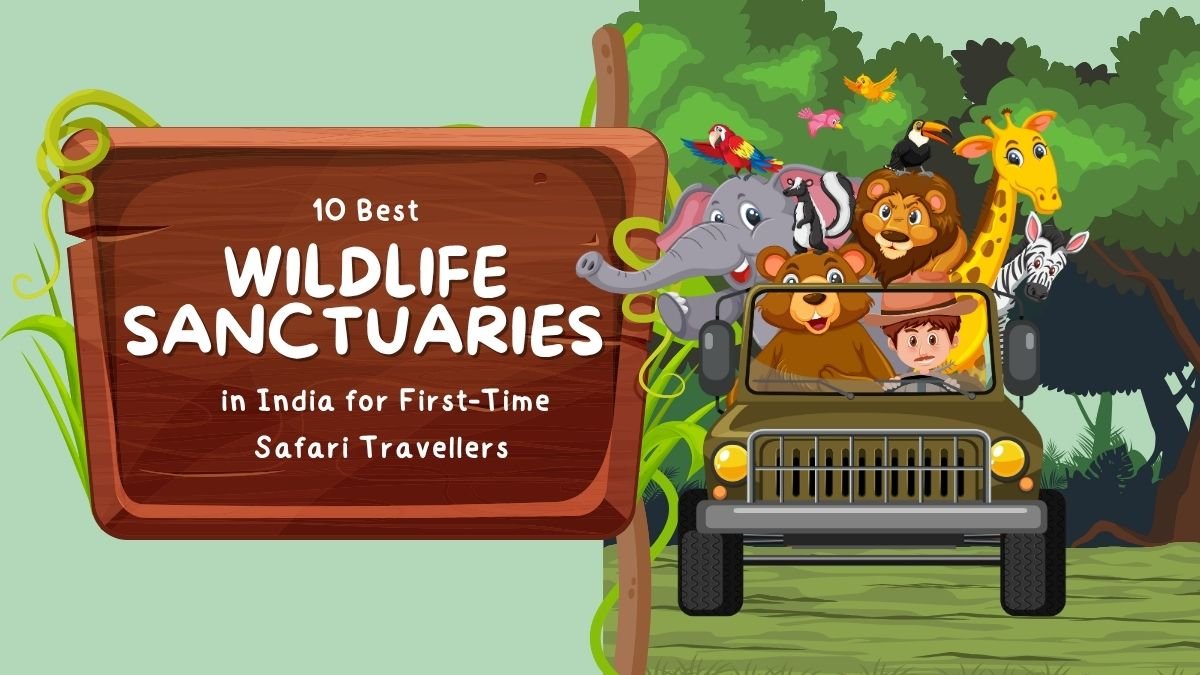Complete Guide to Wildlife Safari in India: Permits, Cost, Routes and Safety Tips
Wildlife safari in India is an extremely exciting and memorable experience. Dense forests, silently moving tigers, chirping birds and herds of elephants – all these together make the world of the jungle come alive. But a successful safari experience is not just about luck, but also good planning and the right information.
If you are planning a jungle safari in any national park in India, then in this article you will get complete information about it – such as when to go, which permits are required, how much it can cost, what to carry with you, and what things to keep in mind in the forest.
1. Choosing the right park and time for safari
Which parks to choose?
India has lots of national parks and wildlife sanctuaries which are famous for safaris. Major ones are mentioned as below:
- Ranthambhore National Park (Rajasthan) – tigers are famous
- Bandhavgarh National Park (Madhya Pradesh) – has the highest density of tigers in India
- Kanha National Park (Madhya Pradesh) – inspired the “Jungle Book”
- Tadoba Andhari Tiger Reserve (Maharashtra) – gives great sightings of tigers
- Pench National Park (Madhya Pradesh/Maharashtra) – famous for tigers and leopards
- Nagarhole and Bandipur (Karnataka) – contains the dense forests of South India
- Jim Corbett National Park (Uttarakhand) – first national park of India
Best season for safari
October to March is considered the best time to do jungle safari in India. During this time the weather is pleasant, there are cold mornings and the animals are also more active.
Special month for tiger sighting:
February to April is the best time to see tigers because at this time the leaves of the trees have fallen and the activity of the animals is more visible.
Why not to go in monsoon:
Most parks are closed between July and September as the rains damage the roads and can make safari dangerous.
2. Important things about permits and bookings
Why is advance booking necessary?
Safari permits are given in limited numbers in famous national parks of India and they get filled up very quickly, especially during peak season. So it is wise to book safari and hotels 3–4 months in advance.
How to book?
Nowadays most national parks have online booking websites. A lot of times, it really fills up before well in advance, for example, in the case of the national parks: Kanha, Bandhavgarh, Pench.
What information is required?
- Aadhaar card or passport details
- Name, age, gender
- Safari date
- Vehicle type (jeep or canter)
- Advance payment
Choice of tour operator
If you want to avoid the hassle of booking and permits, you can book with a trusted tour operator like Tigerwalah. They will manage everything for you – permits, guides, transport, hotels and food.
3. Safari expenses – at a glance
The total cost of a jungle safari depends on many factors – such as the location of the park, season, accommodation and type of tour. Below are some estimated expenses:
| Type of Expense | Estimated Amount (Per Person Per Day) |
|---|---|
| Hotel/Resort | ₹3,000 – ₹30,000 |
| Safari Permit | ₹1,500 – ₹3,000 |
| Guide Fee | ₹1,000 – ₹2,000 |
| Food Expenses | ₹800 – ₹2,000 |
| Transport (Cab/Train) | ₹1,000 – ₹5,000 (Depends on Location) |
Fixed Tour vs Custom Tour
If you are going alone, choosing a fixed departure tour (which has pre-decided dates and group travel) is cheaper and convenient. While a custom tour is for those who want a private safari and luxury experience.
4. What are the essential items to take for the safari?
Sort things for packing which might be suitable for an enjoyable jungle safari:
- Binoculars: To spot animals from a distance
- Camera (with zoom lens): For memorable photos
- Sunscreens and mosquito repellents: Sunscreen protection and mosquito repellent protection
- Cloth: Brown, olive, and faded black tones were worn to complement the environment and . Avoid red or white clothes
- Light jacket or sweater: Morning safaris can be cold
- Scarf or handkerchief: To avoid dust
5. Rules for safety and responsible tourism
- Listen to the guide: The guides know the forest well, so listen with rapt attention, and obey them. Your safety and that of animals will be at risk otherwise.
- Respect animals: Never attract animals by shouting, luring them with food or by screaming.
- Do not get out of the safari vehicle
- Do not litter in the forest
- Do not make noise – keep the peace
Choose responsible lodges and resorts
Choose an environmentally conscious hotel or resort, so that is, no solar power alternatives, limited to plastic, or at least donating to wildlife conservation efforts.
Conclusion: Safari is an experience, not just a trip
It provides you an avenue, through which to find animals; but much more so, it is something to immerse you within a world even more with nature, understanding its importance, and slowing down the pace of life for a while. This experience becomes even more special in one of the national parks in India, because the biodiversity, culture, and hospitality of this place are so different from the rest of the world.
Well, if you are on the safari planning level, read this guide and equip yourself to the rules of the jungle. Believe me; it will be a trip to remember for the rest of your life.








